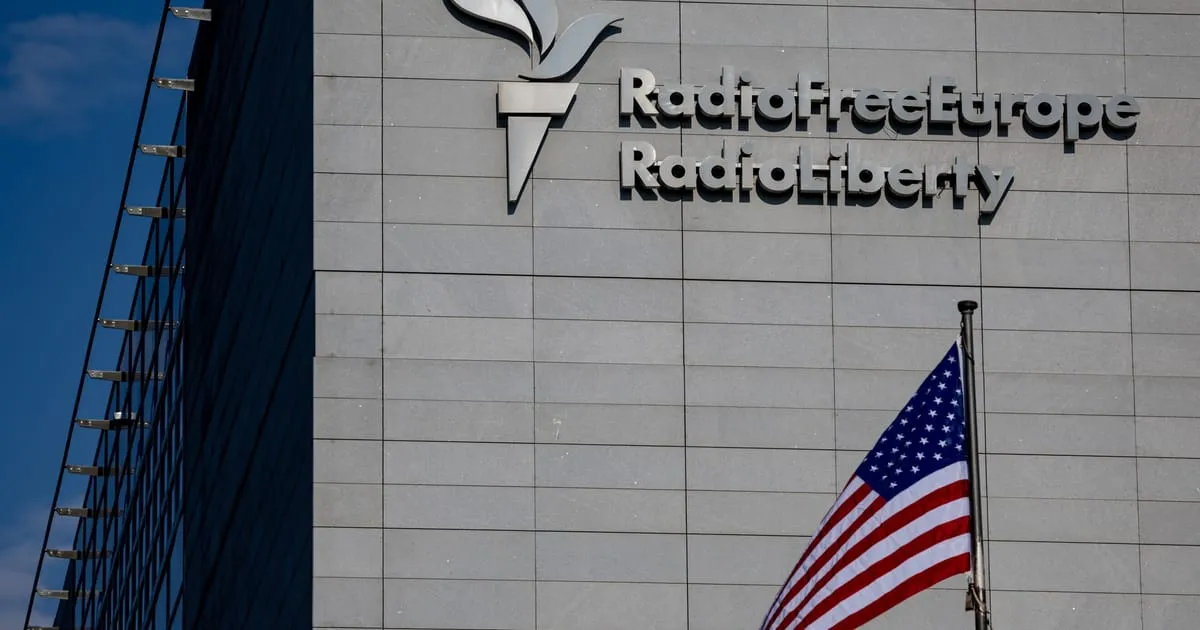
U.S. President Donald Trump’s recent decision to halt financing for U.S.-funded media organizations, including the Voice of America (VOA) and Radio Free Europe/Radio Liberty (RFE/RL), has ignited widespread anger and indignation among journalists and advocates of free press. On Saturday, numerous journalists from these outlets were placed on administrative leave or instructed to cease their work, following Trump's directive to effectively freeze funding for media entities that have correspondents around the globe, particularly in regions such as Eastern Europe and Central Asia.
Michael Abramowitz, the director of VOA, expressed profound sadness over this unprecedented situation, stating that for the first time in 83 years, the storied network is facing potential silencing. He announced that over 1,300 VOA journalists and staff members, himself included, have been placed on administrative leave as a result of this funding halt. The implications of this decision could severely limit the ability of these media outlets to provide critical coverage of international events.
On Friday, President Trump signed an executive order aimed at minimizing the functions of several government agencies, including the United States Agency for Global Media (USAGM), which oversees not only VOA and RFE/RL but also the Office of Cuba Broadcasting, Radio Free Asia, and the Middle East Broadcasting Networks. This executive action has raised concerns regarding the future of independent journalism funded by the U.S. government.
Stephen Capus, President and CEO of RFE/RL, articulated the gravity of the situation, stating that the cancellation of the grant agreement would be a significant advantage for America’s adversaries, including the Iranian Ayatollahs, Chinese communist leaders, and autocrats in Moscow and Minsk. “These groups would celebrate the demise of RFE/RL after 75 years,” he warned, emphasizing that this decision could ultimately strengthen America’s enemies and weaken the nation itself.
Notably, VOA and RFE/RL are already labeled as undesirable foreign organizations by Russia, heightening the stakes of Trump's actions. Meanwhile, Radio Free Asia is expected to begin furloughing some of its employees in the coming days, as reported by POLITICO.
The international nongovernmental organization, Reporters Without Borders, condemned this decision, calling it a departure from the historical role of the United States as a defender of free information. The NGO urged both the U.S. Congress and the international community to take action against this unprecedented move, highlighting the potential ramifications for global press freedom.
In response to the backlash, Trump's administration has made baseless claims about the affected media outlets being biased. The White House stated that this decision would relieve taxpayers from funding what they termed "radical propaganda." Kari Lake, a senior adviser to USAGM appointed by Trump, echoed this sentiment, declaring that the agency is “not salvageable” and characterizing it as a “giant rot and burden to the American taxpayer.”
Established in 1942, VOA has historically played a vital role in broadcasting news and information globally. Its charter, established in 1976, asserts that conveying information directly to the world's people serves the long-range interests of the United States. Importantly, legislation enacted in the 1990s and 2010s has safeguarded VOA from direct interference by U.S. government officials, underscoring the critical nature of its independent journalism.
Earlier this month, Elon Musk’s Department of Government Efficiency (DOGE) imposed a 30-day freeze on funding for USAGM outlets, including VOA and RFE/RL, which many see as a precursor to a more permanent cessation of government support for these pivotal media organizations. The future of U.S.-funded journalism hangs in the balance as this situation unfolds.